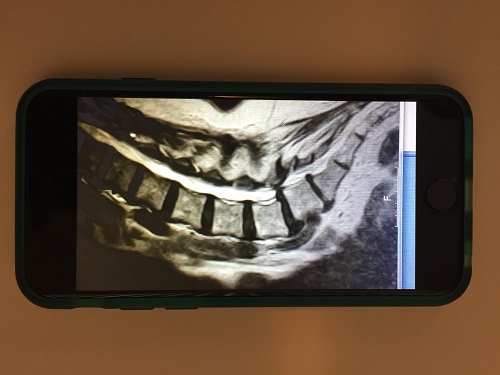
When Dr. Itai Gross was a resident spending the night in Hadassah’s neonatal intensive care unit, he wasn’t sure if the oxygen supply was correct for a premature baby girl. He called the attending physician. Said the senior doctor, “Don’t waste time waiting for the computer to warm up. Send me a picture of the respiratory tube via WhatsApp.”
WhatsApp, invented by Russian Jewish computer whiz Jan Koum, is the world’s most popular messaging app, used by more than a billion smartphone owners.
That eureka moment spurred Dr. Gross, now a full-fledged pediatrician at Hadassah, to investigate the effectiveness of diagnosis via WhatsApp. He studied the use of WhatsApp by 68 pediatric residents and 20 neonatologists in three different Israeli hospitals. All the physicians viewed x-rays on smartphones and computers.
Except for viewing the tiniest vessels of babies still in utero, the images on WhatsApp were as clear as those on a computer. The results of that research were published in the peer-reviewed Acta Paediatrica journal in June 2018.
Dr. Saar Hashavia, Head of Pediatric Emergency Medicine at Hadassah, was glad to hear the results of his colleague’s research. He’s created a unique life-saving WhatsApp group.
“After training four Kurdish doctors who secretly came to Hadassah to learn emergency pediatric medicine, we needed a way to keep helping them while they treat children in conflict areas,” he said. The WhatsApp group he started includes more than a dozen pediatric specialists who are available 24/7 for consultations with the Kurdish doctors helping injured children in Iraq and Syria. The Kurdish doctors send a description of the medical problem and any available diagnostics to the WhatsApp group, and Hadassah experts respond with diagnoses and suggestions for treatment.
Where traditional medical resources aren’t available, Hadassah experts help the Kurdish doctors find creative solutions with what they have. All of this is below the official radar and doesn’t expose the medical professionals abroad to persecution for having contact with Israel.
“Telemedicine is the future of medicine in conflict areas,” said Dr. Hashavia. “I look forward to working with Israeli high-tech to develop the technological tools necessary to bring telemedicine to the next level. In the near future, telemedicine will enable Hadassah doctors to make an even larger impact on health throughout the world.”
